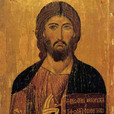
Summary: Episode 55 – The Crusades, Part 2 As Bruce Shelly aptly states in in his excellent book Church History in Plain Language, for the past 700 years Christians have tried to forget the Crusades, though neither Jews nor Muslims will let them. Modern Christians want to dismiss that era of Church History as the insane bigotry of the illiterate and superstitious. But to do so is to show our own kind of bigotry, one neglectful of the historical context of the European Middle Ages. The Crusaders were human beings, who like us, had mixed motives often in conflict. The word crusade means to “take up the cross,” hopefully after the example of Christ. That’s why on the way to the Holy Land crusaders wore the cross on their chest. On their return home they wore it on their back. [1] In rallying the European nobility to join the First Crusade, Pope Urban II promised them forgiveness of past sins. Most of them held a deep reverence for the land Jesus had walked. That devotion was captured later by Shakespeare when he has King Henry IV say: We are impressed and engag’d to fight … To chase those pagans in those holy fields, Over whose acres walked those blessed feet, Which fourteen hundred years ago were nail’d, For our advantage on the bitter cross. For Urban and later popes, the Crusades were a Holy War. Augustine, whose theology shaped the Medieval Church, laid down the principles of a “just war.” He said that it must be conducted by the State; its broad purpose was to uphold an endangered justice, which meant more narrowly that it must be defensive to protect life and property. In conducting such a just war there must be respect for noncombatants, hostages, and prisoners. And while all this may have been in the mind of Pope Urban and other church leaders when they called the First Crusade, those ideals didn’t make it past the boundary of Europe. Once the Crusaders arrived in the East, the difficulties of their passage conspired to justify in their minds the wholesale pillaging of the innocent. Even those who’d originally taken up the Crusader cross with noble intent, didn’t want to be left out of acquiring treasure once the looting began. After all, everyone else is doing it? As we return to our narrative of the First Crusade, let’s recap … What triggered the Crusade was a request for assistance from Byzantine emperor Alexios I Komnenos. Alexios worried about the advances of the Muslim Seljuk Turks, who’d reached as far west as Nicaea, a suburb of Constantinople. In March 1095, Alexios sent envoys to the Council of Piacenza to ask Pope Urban II for aid against the Turks. Urban’s reply was positive. It’s likely he hoped to heal the Great Schism of 40 yrs before that had sundered Western and Eastern churches. In the Summer of 1095, Urban turned to his homeland of France to recruit for the campaign. His journey ended at the Council of Clermont in November, where he gave an impassioned sermon to a large audience of French nobles and clergy, detailing the atrocities committed against pilgrims and Christians living in the East by the Muslims. Malcolm Gladwell wrote a bestseller in 2000 called The Tipping Point. The Pope’s speech was one of those, an epic tipping point that sent history in a new direction. Urban understood what he proposed as an act so expensive, long, and arduous that it amounted to a form of penance capable of discharging all sins for those who went crusading. And he understood how his audience’s minds worked. Coming from a noble house himself and having worked his way up through the ranks of the monastery and Church, he understood the puzzle that lay at the heart of popular religious sentiment. People were keenly aware of their sinfulness and sought to expunge it by embarking on a pilgrimage, or if that wasn’t possible, to endow a monk or nun so they could live a life of sequestered holiness on their behalf. But their unavoidable immersion in the world meant it was impossible to perform all of the time-consuming penances which
